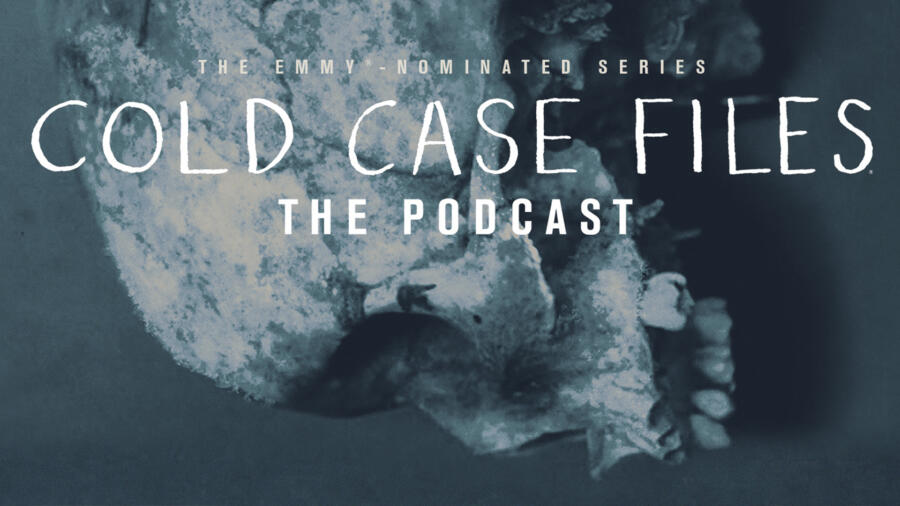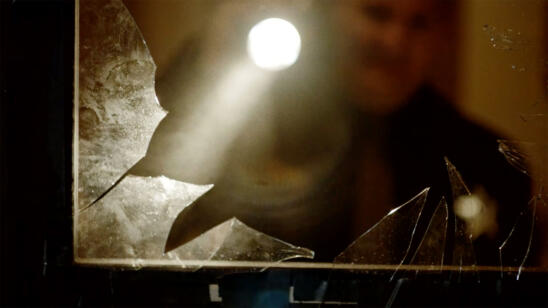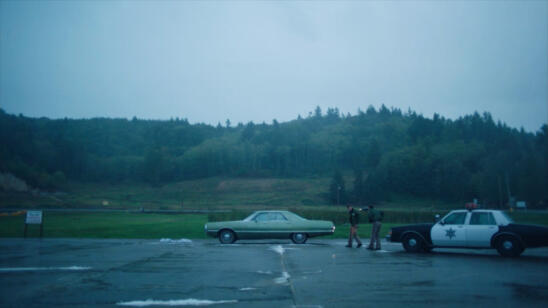Social worker Brooke Gittings, whose wildly successful Convicted podcast tells the story of imprisoned killer Richard Nicolas, will take on host duties for A&E’s new Cold Case Files podcast. Brooke will guide listeners through the fascinating twists and turns of the cases covered by A&E’s new Cold Case Files series. We asked her about recording podcasts from a walk-in closet (while wearing pajamas), why it matters to solve cold cases, and the strange overlap between Convicted and Netflix’s The Keepers.
True Crime: Are you surprised by how well Convicted, about Richard Nicolas (who was found guilty of the shooting murder of his two-year-old daughter), has done?
Gittings: Convicted is very labor-intensive and, being someone who works from my closet (which I do because it’s quiet) with no radio experience at all, it’s shocking how well it’s doing. At one point we were number two on the US iTunes chart. That tells me that people are really interested in this kind of story and making sure the justice system is working.
RC: Do you think the success of podcasts like yours or Serial and TV shows like The Keepers means that people feel the world is going to hell—or is it more that we want to help turn the tide in a positive direction?
Gittings: I think it’s the second one. I haven’t seen The Keepers yet and really want to because I’ve discovered that the prosecutor on that case was also the prosecutor on the case that I’m covering in Convicted. In my podcast episode on June 19th you’re going to hear about some of her unethical behavior in Richard’s case—and you can quote me on that. We’re going to talk about interesting behaviors after the trial that even made me—a layperson—say, “Wait, she did what?” When people hear it, they’re going to be shocked.
[NOTE to readers: More to come from Brooke on this subject exclusively on True Crime–make sure you check back in on June 27th]
RC: It’s amazing how many cold cases there are out there. What do listeners and viewers get from the Cold Case Files show and podcast?
Gittings: There are a million of us armchair detectives out there. I think that we’re drawn to this type of topic because we want to help. We want to help solve the mystery. We want to give closure to the families. That’s what draws us.
RC: The first case you’re covering is called “She Never Came Home,” about Tina Faelz, a teenager who was stabbed to death in 1984 returning from school.
Gittings: There were kids bullying her at school. So, instead of riding the bus home with the bullies, she decided to walk. It turned out they were in detention and didn’t ride the bus that day either. It’s tragic. I don’t think there’s a better way to say it. This is so different from my other podcasts because those are celebrating innocence, and this is trying to catch the bad guy. It’s kind of the reverse. I think that my first thoughts in the cold cases are about the family—are they getting help for this? Are they suffering? Because decades later they didn’t have any answers and they can’t properly grieve until they get those answers.
RC: And is this what people find so compelling about true crime?
Gittings: People are so intrigued by the mystery and helping solve it. People get some kind of personal satisfaction from helping a real person on a real case. And, I think this is very important for Cold Case Files, too: When some of these crimes originally happened, there was no social media. Now, I can say “My dog is missing” and post it on Facebook and a couple of hours later my neighbor has found my dog. Back in the time when these crimes actually happened, I’d have to be knocking on doors and hanging flyers on telephone poles. Now I’m connected to the entire world sitting at my desk. Social media has made people feel like they can help—because they can! You really might have some insight or think of something no one else has thought of.
I get so many emails from people asking how they can help. It fills my heart that people want to be part of righting a wrong. And, in these cold case stories, sometimes justice didn’t happen, but at least the family gets closure. They got their questions answered and, sometimes, that might be more important than justice. Though I do love the episodes where they get justice and closure.
RC: How are the Cold Case Files TV show and podcast different?
Gittings: When you see something on a screen, you have visual cues—you see the scene. People from the generation that’s happening now like to multi-task. When I’m listening to a podcast, I’m also cleaning the kitchen or driving somewhere. I’m counting on the narrator to make me see those visual cues in my brain, to make me imagine what it looks like. Sometimes that can be more vivid than what’s on screen. Podcasting is interesting because you get the picture without having seen it.
Though I do need to make a confession—I really agreed to do the Cold Case Files podcast because I wanted to hang out with Bill Kurtis. I read his interview on the blog that he had a release party for the first episode of the show, but I think my invitation must have gotten lost in the mail. If you talk to him, let him know.
RC: You don’t sound like a “typical” radio host. Do you mind that you get criticism for it?
Gittings: Womens’ voices are policed a lot. I never call myself a journalist or a reporter. I always say I’m a social worker that has a podcast. Or I’m a podcaster social worker. I think that is an important distinction because I don’t know all the journalism rules. I used to work as a social worker for children, focusing on mental health and addiction. I think my social worker voice does make it more like we’re having a conversation.
RC: Why podcasting?
Gittings: What inspired me to be a podcaster is what inspired me to be a social worker—wanting to help people. What inspired me to start my first podcast, Actual Innocence, was this sense of injustice. And social workers fight injustice; they fight for the little guy. As in Convicted, regardless of whether the man is innocent or guilty, I don’t believe he got a fair trial. I think that a conviction based on an unfair trial is not justice, and that’s not okay. It sets a precedent for other people to not get justice. It paves the way for innocent people to be put in prison. As a social worker, I want to help in the biggest way possible. And that led me to podcasting. It’s not the entertainment value that’s important to me, it’s the message and the cause. That’s why I’m doing the Cold Case Files podcast too.
A&E’s True Crime gets closer to the people and the stories behind the crime headlines.
Watch full episodes and more at the official Cold Case Files site.
Subscribe to Cold Case Files: The Podcast at PodcastOne.


